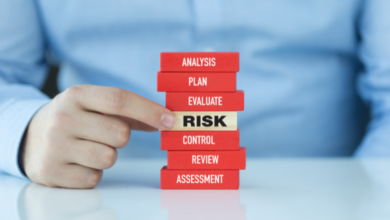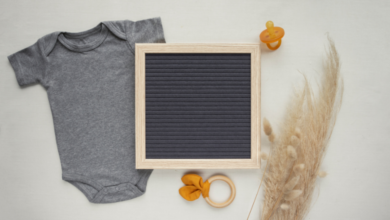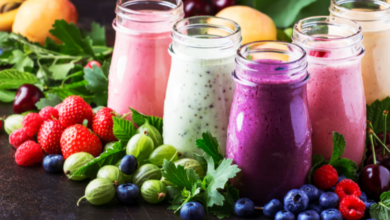Is Ceviche Safe for Pregnant Women? Understanding the Risks and Side Effects

Introduction
Pregnancy brings with it a host of dietary considerations aimed at ensuring both maternal and fetal health. Among these considerations is the consumption of certain foods that might pose risks. Ceviche, a popular Latin American dish made from raw fish or seafood marinated in citrus juices, is one such food that raises concerns for pregnant women. This article delves into whether it is safe for pregnant women to eat ceviche, explores the associated risks, and provides guidance on how to manage these risks.
- What is Ceviche?
1.1 Ingredients and Preparation
- Basic Ingredients: Ceviche typically consists of raw fish or seafood, such as shrimp, scallops, or white fish, marinated in a mixture of citrus juices (lemon or lime), onions, cilantro, and chili peppers. The acidity from the citrus juice is believed to “cook” the fish, altering its texture and flavor.
- Preparation Process: The fish is cut into small pieces and marinated for a specific period. The acid in the citrus juice changes the protein structure of the fish, giving it a cooked appearance and flavor.
1.2 Variations of Ceviche
- Regional Differences: Different regions may have variations, including the addition of fruits like mango or avocado, or the use of different types of seafood.
- Acid Levels: The effectiveness of the marinating process can vary, with some variations using more or less citrus juice.
- Risks of Eating Raw or Undercooked Seafood During Pregnancy
2.1 Risk of Foodborne Illness
- Pathogens: Raw seafood can harbor harmful bacteria, viruses, and parasites that can cause foodborne illnesses. Common pathogens include Salmonella, Vibrio, and Listeria, which can be particularly dangerous during pregnancy.
- Impact on Pregnancy: Foodborne illnesses can lead to severe symptoms such as nausea, vomiting, diarrhea, and dehydration. In pregnant women, these infections can cause complications such as preterm labor, miscarriage, or severe illness.
2.2 Risk of Parasites
- Types of Parasites: Parasites like Anisakis simplex (a type of roundworm) can be present in raw fish and cause gastrointestinal issues.
- Symptoms: Symptoms of parasitic infections include abdominal pain, nausea, vomiting, and diarrhea. Some parasites can lead to more severe health problems if left untreated.
2.3 Risk of Mercury Exposure
- Mercury Levels: Certain fish, especially larger predatory species like tuna, can contain high levels of mercury, which can harm the developing fetus. Although ceviche often uses smaller fish, it’s still important to consider mercury exposure.
- Effects on Fetal Development: High mercury levels can affect the nervous system development of the fetus, leading to potential developmental delays and cognitive issues.
- How Ceviche Preparation Affects Its Safety
3.1 Marination and Its Limits
- Acidity and Cooking: While citrus juice can alter the texture and flavor of the fish, it does not kill all harmful pathogens. The marination process may not be sufficient to ensure the complete safety of the seafood.
- Duration of Marination: The length of time the fish is marinated can impact safety, with longer marination times providing somewhat more protection but not guaranteeing the elimination of pathogens.
3.2 Source and Quality of Seafood
- Freshness and Handling: The safety of ceviche is highly dependent on the freshness and handling of the seafood. Proper storage, handling, and sourcing from reputable suppliers are crucial in reducing risk.
- Freezing: Some guidelines recommend freezing fish to kill parasites before consumption, but this does not eliminate the risk of bacterial contamination.
- Health Guidelines for Pregnant Women
4.1 General Recommendations
- Avoid Raw Seafood: Pregnant women are generally advised to avoid raw or undercooked seafood due to the risks of foodborne illnesses and parasites.
- Safe Alternatives: Opt for cooked seafood options to ensure safety. Cooking seafood thoroughly can kill harmful pathogens and parasites.
4.2 Safe Seafood Choices
- Cooking Guidelines: Ensure seafood is cooked to an internal temperature of 145°F (63°C). This includes fish and shellfish, which should be opaque and separate easily with a fork.
- Low-Mercury Options: Choose seafood low in mercury, such as shrimp, salmon, and tilapia, while avoiding high-mercury fish like shark, swordfish, and king mackerel.
4.3 Consult Healthcare Providers
- Personalized Advice: Consult your healthcare provider for personalized dietary advice and to address any concerns regarding seafood consumption during pregnancy.
- Nutritional Needs: Discuss alternative sources of nutrients typically provided by seafood, such as omega-3 fatty acids, to ensure a balanced diet.
- Addressing Common Questions and Concerns
5.1 Can I Eat Ceviche if It’s Made with Cooked Seafood?
- Cooked Seafood: Ceviche made with pre-cooked seafood carries less risk, but it’s essential to ensure that the seafood is cooked thoroughly and handled properly to avoid cross-contamination.
- Safety Precautions: Even with cooked seafood, it’s important to be cautious and ensure that the preparation follows strict hygiene practices.
5.2 Are There Any Safe Ways to Enjoy Ceviche During Pregnancy?
- Safe Practices: If you choose to consume ceviche, ensure that the seafood is sourced from a reputable supplier, is frozen beforehand, and is prepared with the highest hygiene standards.
- Consultation: Discuss with your healthcare provider to determine if consuming ceviche is safe for your specific situation.
5.3 What Are the Signs of Foodborne Illness or Parasite Infection?
- Symptoms: Watch for symptoms such as severe abdominal pain, persistent vomiting, diarrhea, fever, and signs of dehydration. Seek medical attention if you experience any of these symptoms.
- Medical Attention: Prompt treatment is crucial to manage symptoms and reduce the risk of complications.
- Conclusion
Ceviche, while a popular and delicious dish, poses potential risks for pregnant women due to its use of raw or undercooked seafood. The primary concerns include foodborne illnesses, parasites, and mercury exposure. Understanding these risks and following general safety guidelines can help minimize potential hazards. Pregnant women are generally advised to avoid raw seafood and opt for thoroughly cooked alternatives to ensure both maternal and fetal health. Consulting with a healthcare provider can provide personalized guidance and support in making safe dietary choices during pregnancy. Ensuring food safety and making informed decisions are key to a healthy and worry-free pregnancy.




